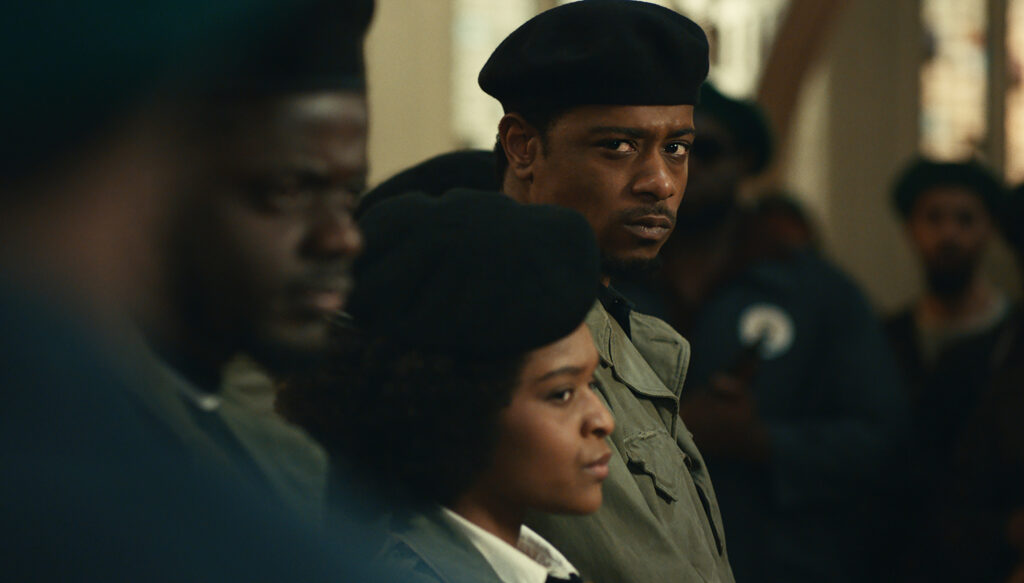Judas and the Black Messiah arrives on the heels of other films representing seminal moments in Black history, such as One Night in Miami and The Trial of the Chicago 7. Directed by Shaka King, it portrays Fred Hampton, a firebrand and an influential leader of the Black Panther party, through the eyes of his betrayer, car thief and FBI informant William O’Neal. It recontextualizes Hampton as a magnetic personality and skilled orator, which had been overshadowed by his tragic death in a FBI raid.
When FBI agent Roy Mitchell (Jesse Plemons) offers Bill O’Neal (Lakeith Stanfield) to infiltrate the Illinois chapter of the Black Panthers and spy on Fred Hampton (Daniel Kaluuya), the president of the chapter, O’Neal hardly thinks twice. You see, he has just been arrested and is facing six years of jail time. Once he starts attending Black Panther meetings and starts seeing Hampton from up close, though, he starts having doubts. He is constantly in fear of getting discovered as a snitch, and after Hampton goes to jail on trumped up charges, he takes up additional responsibilities in the party. Before long, however, he faces his moment of reckoning: drugging Hampton so that he would be sedated later that night when the FBI raided his building.

Daniel Kaluuya has been getting a lot of attention for his performance, and rightfully so.
He disappears into the role, tapping into his fierce oratory skills and confidence, as well as his shy, introspective side when he is around with another Panther, Deborah (Dominique Fishback). Lakeith Stanfield also turns in a robust performance, portraying the duality of O’Neal well even though his character doesn’t get as much material as he should have. Fishback provides some much needed context to Hampton’s softer side, acting almost like the skeptic inside his head, reminding him of the consequences of being ready to die for his cause. Plemons also gets a chilling scene with FBI director J. Edgar Hoover (Martin Sheen) whose paranoia about the black epidemic makes him think twice about his own conviction that the Black Panthers are just like the KKK.
Judas and the Black Messiah centers the narrative around the injustices faced by black Americans in the late sixties- injustices which seem almost unthinkable these days, but in reality isn’t much different from the discrimination faced by minorities in the US today. To its credit, the film doesn’t sanitize the Black Panthers’ ideology, with Hampton teaching his followers to prepare for a Marxist-Leninist revolution where they may just have to take out police officers if they stood in the way of the revolution. The film balances this by showing Hampton doing outreach with children and the poor, as well as his role as an unifier when he forms the Rainbow coalition with the Young Lords and Young Patriots, who represent latinos and poor whites.
As good as it is, the film misses the opportunity to properly capture O’Neal’s anguish and divided loyalties. Stanfield, to his credit, portrays the stress and anxiety of living a double life, but the film never fully commits to him being the Judas of this narrative. Perhaps, this is because O’Neal was still conflicted years after the events of the film, saying in an interview for a documentary that he was ‘part of the struggle’.
Judas and the Black Messiah is not just an important film, but a well-made one too.
Daniel Kaluuya continues to reinvent himself for every film, and Shaka Khan shines the spotlight on systematic inequality in the days following the civil rights movement and how that still holds up today. It’s slightly long, but the film never loses its pacing, despite a second-half that is more disjointed than the first-half.